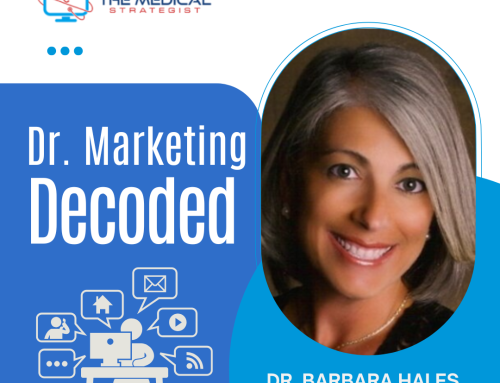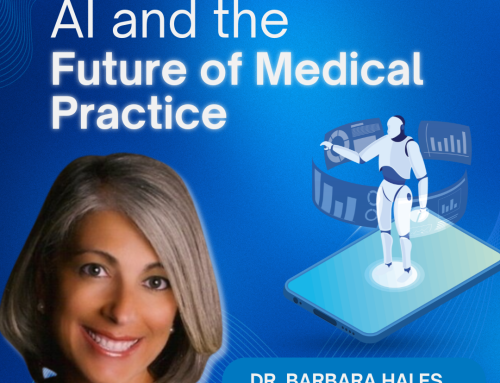Podcast: Play in new window | Download
Subscribe: RSS
In this episode, Dr. Hales discusses:
-The meaning of content curation
-Intricacies of copyright
-Identifying the lines between copyright and curation
Key Takeaways:
“Transform and add value to the content you curate; provide commentary, analysis, or context to make it unique.” – Barbara Hales.
Connect with Barbara Hales:
Twitter: https://twitter.com/DrBarbaraHales
Facebook: https/www.facebook.com/theMedicalStrategist
Business Website: https://www.TheMedicalStrategist.com
Email: halesgangb@aol.com
YouTube: https://www.Youtube.com/TheMedicalStrategist
LinkedIn: https://www.linkedin.com/in/barbarahales
Books:
Content Copy Made Easy
14 Tactics to Triple Sales
Power to the Patient: The Medical Strategist
TRANSCRIPTION (152)
Welcome to another episode of Marketing Tips for Doctors. I’m your host, Dr. Barbara Hales.
Today, we will be discussing content curation versus copyright infringement, and understanding the difference so that you don’t get a cease-and-desist order or fall into more serious legal action.
So, in this episode, we will explore a crucial topic in the digital age: content curation versus copyright infringement. Let’s start by defining content curation.
Content Curation
Content curation is discovering, selecting, organizing, and sharing valuable content from various sources with your audience. The goal is to provide your audience with relevant and valuable information, insight, or entertainment. Content curation involves selection — carefully choosing content that aligns with your niche, theme, or your audience’s interests — organization, and presentation of the curated content in a structured and meaningful manner. Attribution is crucial — properly credit the original creators and sources of the content you create and curate. Additionally, when talking about valuable additions, add your insights, comments, or context to the curated content to enhance its relevance. In other words, you’re not just copying from articles that you’ve read or various resources; you’re taking that information from various sources, digesting it, and making it your own by adding your comments, ideas, and views on the topic.
Copyright Infringement
Now, let’s talk about copyright infringement. Copyright infringement occurs when someone uses, reproduces, or distributes copyrighted material without the permission of the copyright holder. This can include text, images, videos, music, and more. I know when you see a picture that seems so appropriate to what you want to get across to your viewers, that you’re just going to pop it into your article, without realizing that you have to go and get permission from the person who created that image.
The key points regarding copyright infringement to keep in mind are first, exclusive rights. Copyright holders have exclusive rights to reproduce, distribute, and display their work unless, of course, they have a caption or description on their work to say that they are making it free to everyone who wants to use it. But you must check to see whether they have maintained their exclusive rights or have relinquished them. Secondly, fair use. There is a concept called fair use that allows limited use of copyrighted material for purposes like criticism, commentary, news reporting, and education. It has specific criteria and limitations.
Just think if you would join an editorial on something that you read or a comment about something that somebody was discussing; you could give a limited clip, followed by your comment on it, that would be fair use there. Thirdly, permission. To use copyrighted material, you typically need permission from the copyright owner, or the content must fall within the boundaries of fair use. And lastly, the consequences. Copyright infringement can result in legal actions, including fines and the removal of infringing content. Now, your hands can be more than just slapped; you can be removed from social media sites, and you may or may not ever get them back, which can be extremely harmful if you are using social media to attract prospective patients, and clients, or increase your visibility. So this is something that you want to keep your eye on.
The Difference
Now in terms of the line between curation and infringement, where is it? It’s essential to tread carefully and to stay on the right side of the law. So, to recap on that, first, you need permission — seek permission from content creators or publishers, when necessary, especially if you plan to use copyrighted material extensively. Secondly, attribution — always give proper credit to the original creators or sources when curating content. Thirdly, fair use — familiarize yourself with fair use guidelines and make sure your use of copyrighted material falls within these bounds. And lastly, transformative use — transform and add value to the content you curate; provide commentary, analysis, or context to make it unique.
Conclusion
In conclusion, content curation is a legitimate and valuable practice when performed responsibly, ethically, and within legal boundaries. Copyright infringement, on the other hand, involves an unauthorized use of copyrighted material and can lead to legal consequences. By understanding these differences and practicing ethical content curation, you can create engaging and informative content while respecting the rights of content creators.
That’s all for today regarding this episode on content curation versus copyright infringement. But at this point, I do want to discuss the fact that there are certain things as a healthcare provider that you can include in your publications and articles online and certain things that you cannot do as a physician or a healthcare professional. It is within your restricted from saying certain things like, for instance, something cures a medical illness, or a supplement is better than the average medication.
If you would like to have proper health content written for your website, newsletters, published articles, or social media, please feel free to contact me so we can discuss it further. Get a 30-minute free consultation so we can discuss your needs at the medical strategist.as.me to schedule a consultation so that we can get you started. Well, this has been another episode of Marketing Tips for Doctors with your host, Dr. Barbara Hales. Till next time.



